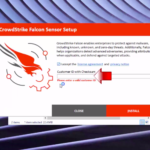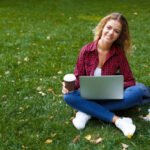Sustaining an injury while working offshore can be a frightening and overwhelming experience. Between doctor visits, insurance claims, lost income and an uncertain future, having experienced legal counsel by your side is critical. An offshore accident lawyer can make all the difference in maximizing your settlement and obtaining the financial resources you need during recovery and rehabilitation.
This guide covers key considerations in hiring the right offshore injury attorney, understanding your legal options and navigating the complexities of an offshore accident lawsuit and claim filing. With the right lawyer guiding you, justice and compensation can be attained even after suffering serious injuries working offshore.
Why Hire an Offshore Accident Lawyer?
Don’t face the legal and insurance matters alone following an offshore accident that was no fault of your own. An experienced maritime and offshore injury lawyer has the in-depth knowledge required regarding:
- Jones Act and maritime laws for offshore accidents
- How to prove negligence of vessel owners and employers
- Calculating and arguing for full financial damages
- Dealing with insurance companies and claims adjusters
- Filing appeals if needed
A lawyer levels the playing field against powerful corporate interests and gets you maximum compensation. They work on a contingency fee so you pay nothing until your case is settled or won. Free consultations determine the merits of your potential case.
Offshore Accident Lawsuit Basics
Three bodies of law predominantly govern offshore accidents and injury cases:
- Jones Act covers the legal rights of injured maritime workers to sue employers for negligence.
- Longshore and Harbor Workers’ Compensation Act provides no-fault benefits but prohibits negligence lawsuits against most land-based maritime employers.
- Outer Continental Shelf Lands Act (OCSLA) extends Longshore Act coverage plus law of adjacent states to platforms on the outer continental shelf.
Your lawyer determines which laws have jurisdiction based on location and nature of accident. They utilize the optimal channels for filing your injury claims and lawsuits.
Choosing the Best Offshore Accident Lawyer for Your Case
Not every personal injury lawyer has specialized expertise in offshore accident cases. Seek out a maritime lawyer who regularly handles these complex cases. Consider:
- Lawyer’s level of experience with Jones Act lawsuits, maritime law and past case results
- Offshore accident focus and case volume
- Resources of the law firm and ability to stand up to large corporations
- Location near you or experienced with accidents where they occurred
- Rapport during consultation and confidence in the lawyer
Go with an aggressive lawyer truly passionate about fighting for the rights of offshore workers. This gives you the greatest advantage.
Understanding the Lawsuit Process
Your attorney guides you through every phase of the legal process:
- Investigating the Accident – Collecting evidence, witnesses, accident details and supporting documentation.
- Proving Negligence – Finding where duty of care was breached by employers or vessel owners leading to your injuries.
- Filing the Lawsuit – Your Jones Act complaint names liable defendants and specifies damages suffered. Many cases settle before trial.
- Discovery Phase – Sharing evidence and deposing witnesses, including expert witness testimony.
- Settlement Negotiations – Most cases resolve with a negotiated settlement based on expected trial verdict. Your lawyer fights for maximum compensation.
- Trial – If no settlement is reached, your case proceeds to trial where a judge or jury awards damages.
- Appeals – Your lawyer can appeal if the trial outcome is unsatisfactory.
Understanding this roadmap prepares you for the process ahead. Your lawyer guides you through each step.
Elements for Proving Negligence
In an offshore injury lawsuit, maritime law requires proving:
- You qualify as a seaman under the Jones Act
- Your employer had a legal duty to provide a safe workplace
- Breach of this duty through negligence caused your accident
- Damages and losses suffered as a result
Your lawyer gathers evidence proving employer negligence like lack of safety procedures, insufficient training, faulty equipment, overworked staff, etc. Witness testimony bolsters your case.
With sound legal counsel, you can hold employers financially accountable for offshore accidents they caused.
Maximizing Financial Damages in Your Lawsuit
Beyond paying medical bills, your offshore accident settlement should fully compensate what the injury costs you in aspects like:
- Lost income and reduced future earnings
- Physical pain and emotional suffering
- Disability status or loss of pre-injury capabilities
- Mental anguish, anxiety, PTSD
- Lost quality of life and altered personal relationships
- Medical equipment, home healthcare, rehabilitation
Your lawyer consults medical experts to fully quantify both economic and non-economic damages for a demand letter to the insurance company. They fight to justify every dollar you deserve.
Answering Key Offshore Accident Questions
Some frequent questions that arise after an offshore accident include:
Who can be held legally liable?
Vessel owners, drilling platform owners and operating companies, equipment manufacturers, and direct employers/supervisors can all share liability depending on accident causes.
What if I was partially at fault?
You can still recover damages but your compensation may be reduced by your percentage of fault. An experienced lawyer still builds the strongest case possible under maritime laws.
When do I need to file a Jones Act claim by?
Within 3 years per the statute of limitations. Consult with a lawyer immediately after any offshore injury to preserve your rights. Delay can jeopardize your claim.
How will my settlement be impacted if a loved one died?
Wrongful death claims grant additional damages rights to surviving family members like loss of support, companionship and pain and suffering.
Consult with your offshore injury attorney to understand how maritime laws protect your rights to fair compensation after an accident offshore.
Frequently Asked Questions
Q: What does an offshore accident lawyer cost?
Most offshore accident lawyers work on contingency, charging around 30-40% of your settlement amount as fees and collecting nothing if your case loses. Initial consultations are free.
Q: Should I accept the initial settlement offer?
Very rarely. Your lawyer pushes for full evidence discovery first, then negotiates the highest possible settlement amount based on a thorough damages demand. Let them advise you on a good offer.
Q: How long do these cases normally take?
Anywhere from several months for straightforward cases with smaller settlements to several years for cases involving complex legal factors, severe injuries and extensive evidence processes. Your lawyer manages the timeline.
Q: What if I was partly at fault for my accident offshore?
You can still recover reduced damages, just not to the extent of the defendant’s negligence. Experienced maritime lawyers argue your case in the best possible light under comparative negligence laws.
Q: Can I afford legal representation?
Yes. Offshore accident lawyers work on a contingency fee basis. They only get paid if you receive a settlement, and their fee comes out of that. There are no upfront costs to you.
In The End
Suffering any kind of offshore injury can severely disrupt and compromise life plans. But knowledgeable legal counsel levels the playing field and helps accident victims regain control. With an experienced offshore accident lawyer guiding your case, you can obtain the maximum compensation the law entitles after such a tragedy at sea. Don’t weather the storm alone – let a maritime attorney chart the smoothest course back to stability.










